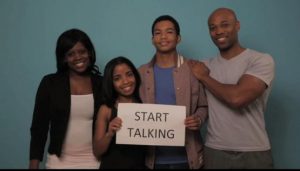Attend Admissions Events and Orientation with Your Student
The more you know about the school your student will attend, the better you can support them. All students are distracted when they first visit a college campus. They’re looking at other students and trying to figure out how they can fit in. Paying attention to a tour guide, listening to a presentation, and remembering next steps are low on their priorities. Parents are more likely to actually hear what’s being said, and being there in person means you don’t have to ask your student as many questions.
Many colleges and universities are now offering information sessions designed specifically for first-generation students and their families. These programs will give you information on how you can support your student and on campus services designed for first-generation students.
View College as a Family Achievement
Parents help when they remind their student that a college education is part of the whole family’s dream. The changes students make during these four years will help them fit into a future that the people at home can take pride in. They will always have the foundation of their family and their background, and what comes next depends on what they learn and how they grow during college.
All family members play a part in supporting the student emotionally and financially. Parents can work with their student to understand what’s happening and what might help at different times.
Try to have an open conversation with your child and lay out what they may need in regards to academics, financial aid, student loans, and what courses they should take. It’s a lot of conversations, but it could help clear up a lot of blurry areas.
Third-year music major
Don’t Worry About Losing Your Son or Daughter

It’s common for parents and family members to wonder if college will change their student and if they will “lose” their child. All students change during the college years, and those changes are not necessarily related to college attendance. It’s normal during this stage of life for young adults to question and challenge their elders and the beliefs they were raised with. This is how young adults determine their values, and in most cases, they will turn out to be similar to that of their family and culture.
Students share the same concerns as their parents and their community about how relationships will change. They worry that they are moving away from the family and friends who have always been important in their life. They also may worry that they are different from the other students they’re meeting.
I think parents should definitely be open to talking to their kids about their experience in college. Especially if parents haven’t gone through college.
First-generation college student
Family Discussion
No student should be entirely on their own. Talk with your student about who stands behind him or her. Who can your child count on? As students begin college, they will meet other first-year students, older students, college staff, faculty, and even people in the community who can provide information, support, and guidance. A teacher or mentor from high school will be willing to listen and offer advice. Students can turn to older brothers, sisters, cousins, and aunts and uncles who have been to college–or wish they had gone. Encourage your student to keep contact information for those people and call them–and you–any time they need help.
Students have reported that reaching out to a faculty member or adviser was the best thing they did during college. Encourage your student to find someone they trust on campus. They should be willing to ask for what they need. In many cases, faculty know of student jobs in their department that are opening up, or they can suggest projects that will provide research experience in the student’s major. Advisers may be able to recommend a student for a scholarship or a competitive program, but they need to know the student is interested in doing the work to qualify.
It’s important to build community. It’s hard, but students need to be brave, work as best as they can, talk to their professors, go to their office hours, get to know them, realize they are human as well and that everybody is pretty open to helping each other.
Second-year psychology major

